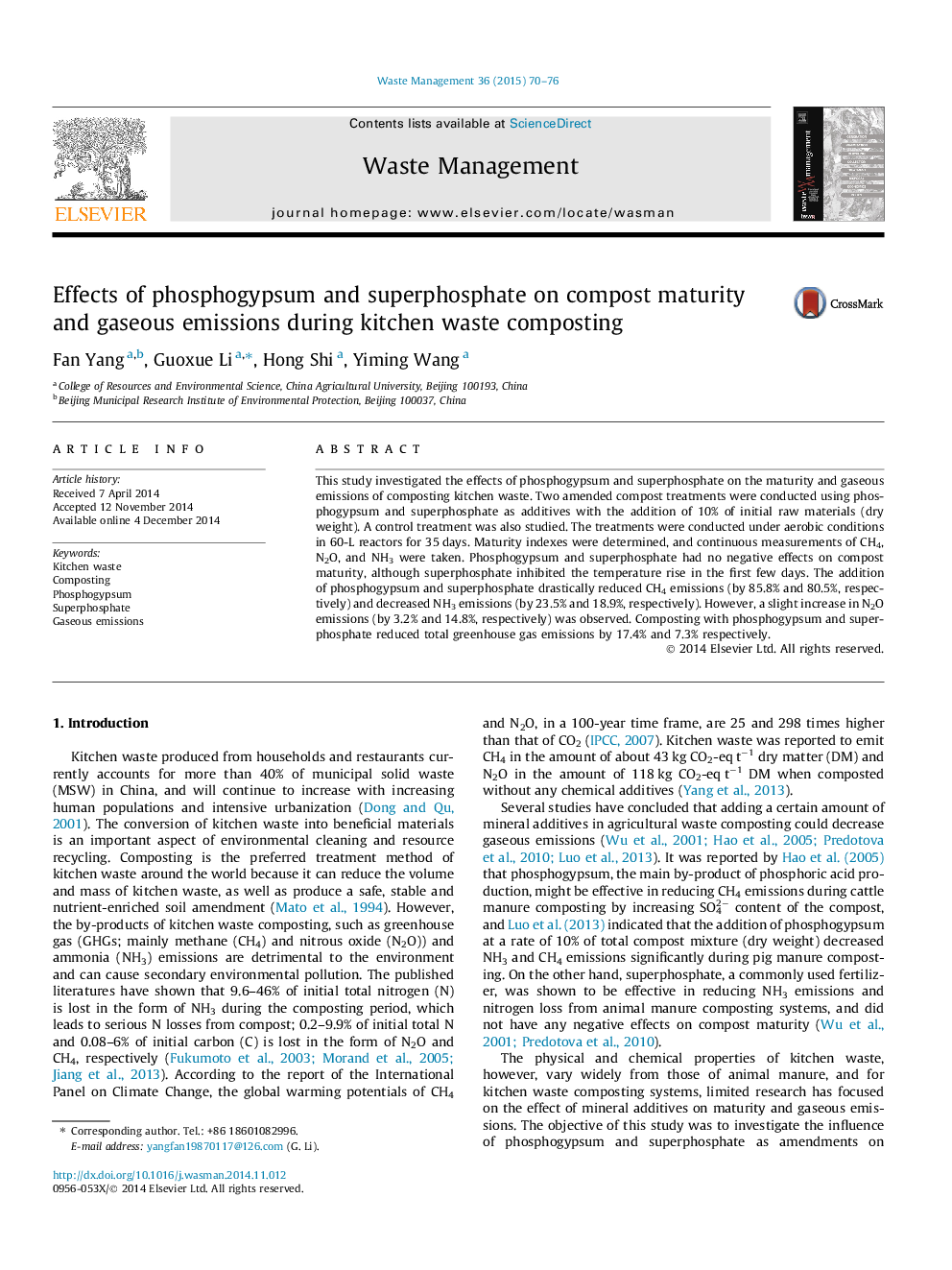| Article ID | Journal | Published Year | Pages | File Type |
|---|---|---|---|---|
| 6354935 | Waste Management | 2015 | 7 Pages |
â¢Effect of phosphogypsum and superphosphate on composting gas emissions was studied.â¢The reduction mechanisms of composting gas were clarified in this study.â¢No negative effect was caused on maturity with phosphogypsum and superphosphate.â¢CH4 and NH3 emission was decreased with phosphogypsum and superphosphate addition.â¢GHG decreased by 17.4% and 7.3% with phosphogypsum and superphosphate addition.
This study investigated the effects of phosphogypsum and superphosphate on the maturity and gaseous emissions of composting kitchen waste. Two amended compost treatments were conducted using phosphogypsum and superphosphate as additives with the addition of 10% of initial raw materials (dry weight). A control treatment was also studied. The treatments were conducted under aerobic conditions in 60-L reactors for 35Â days. Maturity indexes were determined, and continuous measurements of CH4, N2O, and NH3 were taken. Phosphogypsum and superphosphate had no negative effects on compost maturity, although superphosphate inhibited the temperature rise in the first few days. The addition of phosphogypsum and superphosphate drastically reduced CH4 emissions (by 85.8% and 80.5%, respectively) and decreased NH3 emissions (by 23.5% and 18.9%, respectively). However, a slight increase in N2O emissions (by 3.2% and 14.8%, respectively) was observed. Composting with phosphogypsum and superphosphate reduced total greenhouse gas emissions by 17.4% and 7.3% respectively.
